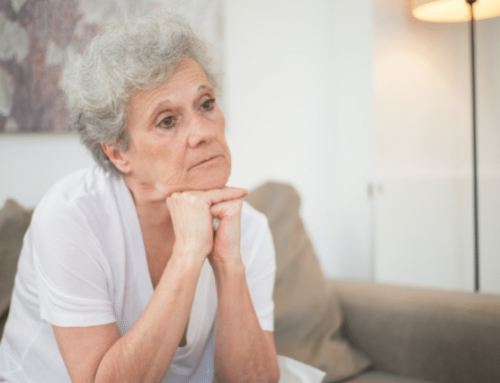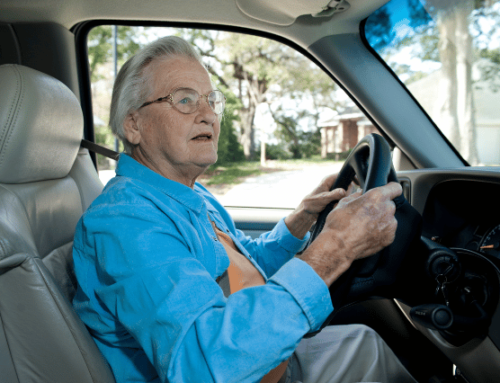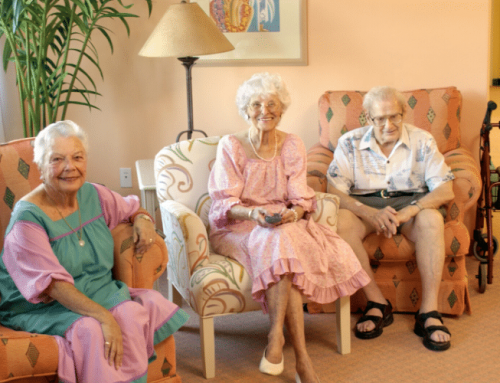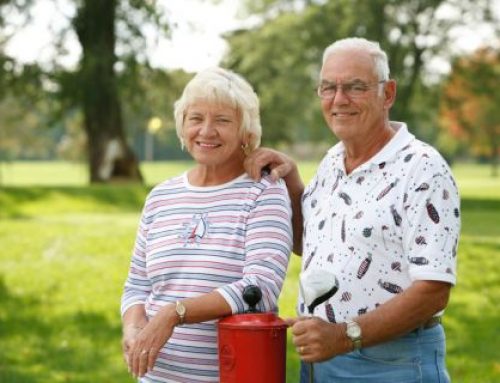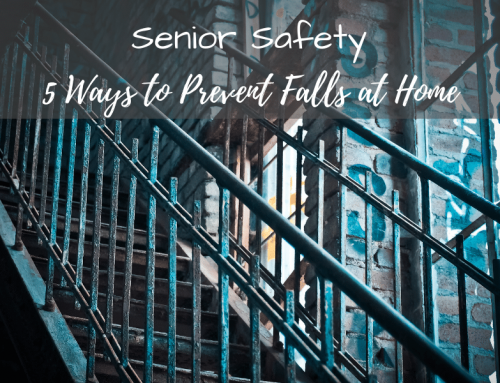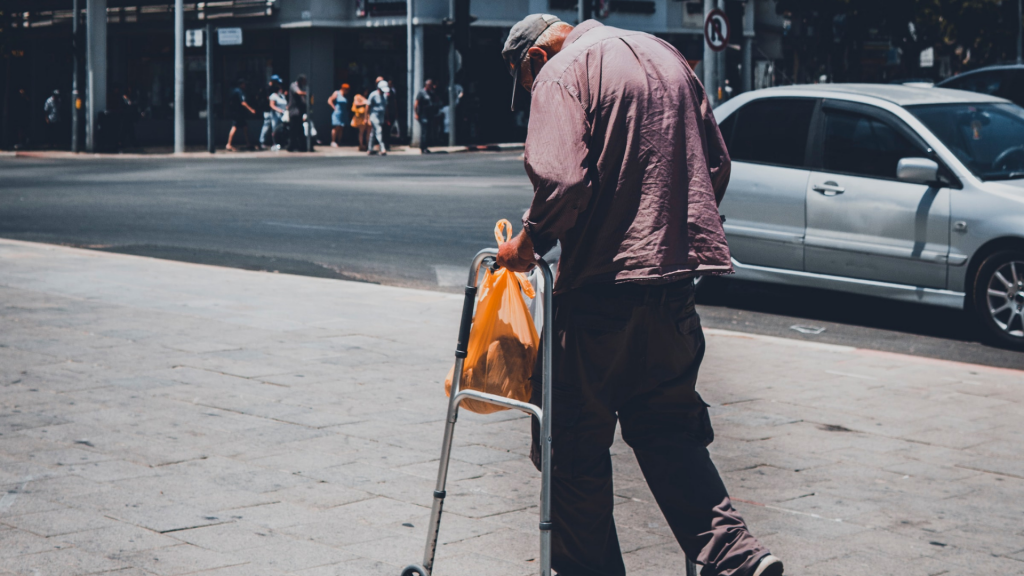
How Seniors Can Avoid Falls Inside and Outside the Home
It’s a fact that many seniors fall and injure themselves, but this is not something to be taken lightly. Falls can lead to serious injuries such as broken bones and other injuries which can have long-term consequences including more falls later down the line and worse, even death. Luckily, there are ways for seniors to reduce their risk of falls and increase their safety with a little bit of help from others.
In this blog post we’ll explore why falls are a serious problem among the aging population and discuss some things they can do about it!
What are falls?
A falls is when a person falls down or backwards and hits the ground. Often falls can happen in places such as home, leading to serious injuries and accidents inside the house that may not be obvious immediately. When a senior falls, they often won’t be able to get up on their own without help. This is a big problem because falls can happen when no one is looking, such as in the shower and seniors may not get up until they are found.
Why falls are a serious problem among seniors?
Falls are the leading cause of injury and death among seniors
Many seniors face a threat in their homes every day, falling. It is the leading cause of injury and death among older Americans with more than two million senior citizens suffering falls each year according to the Centers for Disease Control (CDC). Falling is also a leading cause of hospitalization and injury among older Americans.
Falls are dangerous but also preventable injuries that many seniors must deal with on an almost daily basis as they age throughout life’s journey. They can lead to broken bones or other traumatic events if not treated properly such as concussions which have recently been linked directly back to dementia by new research conducted at Johns Hopkins University School of Medicine. More falls means more health problems!
The risk of falling increases with age, as does the severity of injuries falls cause
Age is a major factor in the risk of falling and increases with age. The severity of injuries also increases as we get older since our bodies become more frail.
People over the age of 65 falls twice as often as those in their 50s. The Centers for Disease Control (CDC) also reports that falls are one of the leading cause of traumatic brain injuries among older people.
The more risk factors you have, the higher the chance falls will happen. Older adults with multiple chronic conditions or who are taking numerous medications or who have visual impairments, motor or balance problems or dizziness may be more likely to experience falls. One such example is when a person falls and hits their head while getting up from the toilet, causing some serious concussions which could lead to dementia if not treated right.
Seniors who experience a fall often have to spend time in rehab or nursing homes
A fall for seniors is a traumatic event that can potentially change the rest of their lives. Many seniors who experience falls end up spending time in nursing homes as well since falls affect the aging body so much more than when they were younger.
The CDC estimates falls send over 300,000 people aged 65 and older to the emergency department every year and more than 20% of falls result in serious injuries such as broken bones, head traumas and hip fractures. In the long run, falls often lead to hospitalization or even death.
There is no one single thing that causes falls – it’s usually a combination of factors
There are various factors that lead to falls. Often, it is a combination of things such as an aging population and poor safety measures in the home combined with slippery surfaces or broken stairs leading to injuries.
For example, falls that often happen at home and in the bathroom are caused by a variety of reasons. Trips and falls happen because of poor lighting, rugs or carpets that slide or bunch up with age, improperly positioned grab bars and slippery surfaces such as wet tile floors. In addition to falls at home, falls can also happen in the yard or outdoors. Trips and falls commonly occur because of debris on the ground, like leaves and sticks that someone didn’t pick up quickly enough.
Aging and medications may affect your fall risk as well. You may slip or trip because of changes in your vision, decreased strength and muscle mass, side-effects from medications, or health conditions that cause dizziness, unsteadiness or coordination problems.
What you can do to prevent falls from happening in your home
Install grab bars in your bathroom to help you get up from the toilet
Grab bars are a simple and easy way that can make using the restroom easier, safer, and more comfortable for those who struggle with mobility issues or balance problems.
Install grab bars in your bathroom to help you get up from the toilet! They’re an incredibly helpful tool when it comes to safety at home as they provide support if someone needs assistance standing after sitting on their commode seat too long without getting off of it—more so than holding onto something like a towel rack because they tend not to be strong enough nor do they offer much stability.
In addition, not only will they allow for a more easy way of getting up but will also provide a needed support as well making falls less likely.
Check for uneven flooring, cracks in the floors, and other hazards that could lead to falls
Flat surfaces are a must-have in the house and checking for hazards around your home is important as falls can happen to anyone no matter their age, so it’s best to be safe than sorry.
Take a tour of your home and have a look at every nook and cranny, even between rooms! Make sure you check that the floors are flat and even, free of cracks or debris. If you have stairs in your home that lead to rooms such as basements, make sure they’re sturdy with no loose nails sticking out.
Keep clutter off of your floor – make sure there are no throw rugs or items on the ground that could cause someone to trip over them
Keeping your home free of clutter is important. If you think falls are a nuisance because they happen so often, imagine how much more dangerous falls would be if there was leftover clutter everywhere and in all areas of the house!
In addition to keeping the floors clear, you should also make sure that there are no throw rugs or items on the ground that could cause someone to trip over them and fall.
Make sure all of your furniture is stable and not too high off the ground
Be sure to check the condition of your furniture before having an elder over. If you have any large, heavy pieces or if they are too tall then it’s best not to use them so that there is no chance a senior will fall off and hurt themselves.
It’s important for seniors to make sure that their furniture falls under specific guidelines:
- Your bed should be low enough so you can sit on the edge or lie back comfortably
- Your nightstands should be low enough so you don’t have to reach up or knee too much to grab whatever you need
- Low coffee tables are best (less than 26 inches).
- High-rise sofas and chairs should also be avoided if possible because you won’t be able to get up and out of them easily (even if they have arms).
- If you think it’s too high, then it probably is.
- Make sure you can get in and out of it without too much trouble.
If you have any pets, keep their food bowls up high so they can’t knock it over onto the floor where people might accidentally step on it
Have any pets? Make sure to keep their food bowls up high. Otherwise, it might be dangerous for people who could accidentally step on the spilled contents of your pet’s dish and hurt themselves or others that way!
Keep your home well lit
It’s important to have enough lighting in your home especially if you live with seniors or other individuals who might have trouble seeing clearly.
Use night lights inside and outside of your home so you don’t have to carry around a flashlight when going from room-to-room in the dark. It’s best to install light switches for easy access and use night lights in dark rooms and hallways so that falls aren’t possible!
Hire a home care provider to assist seniors in their day-to-day living
The best way to prevent falls on seniors is by hiring a home care provider. Hiring an experienced, trustworthy caregiver can mean the difference between life and death for many elderly people who are living alone or not getting enough help from their adult children. A professional caregiver will be able to cook meals, do laundry, clean house as well as assist with medication checks and dressing everyday needs – all while helping your loved one stay safe as possible in his/her own home environment through encouraging regular exercise such as walking around every day. They will make sure that falls are minimized by assisting seniors when they need it most so that falls don’t happen at all. They can also help with stairs and other issues that may pose a threat of falls.
Home care providers are there to make sure falls are minimized as much as possible so don’t be afraid to contact one!
Falls are a serious problem among seniors, but fortunately there’s plenty you can do to prevent them. Whether it’s using the right shoes, or how often you walk, preventing falls is something that should be on your radar if you care about keeping our senior population safe and healthy.
We hope this information has been helpful in making your home safer especially for those who might need some extra help navigating around their house. If not, reach out to us and let us know how we can help! The next time you see seniors, please remember to be extra cautious. If you have elderly parents in this situation, you can either give us a call at (678) 494-8129 or email us at info@SilverCompanions.com and let our team help create your personalized plan today. Our team would love the opportunity to partner with your loved one(s) so they’re living safely at home as much as possible without having any falls along the way!

